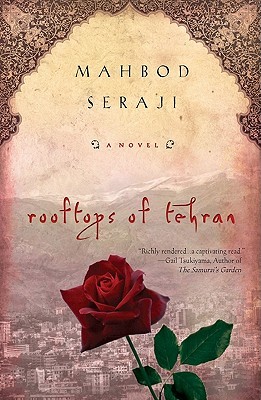More on this book
Community
Kindle Notes & Highlights
In order to cure my introversion, she insists I drink a dusky concoction that looks and smells like used motor oil. I complain that her remedy tastes horrible, and she tells me to be quiet and stop whining. “I thought this potion was to bring me out of my shell,” I remind her. “Hush,” she orders, “whining doesn’t count. If you want to be successful in life you must force yourself to be an extrovert,” she explains. “Introverts end up as lonely poets or destitute writers.” “So,” Ahmed ponders one day, “the engine oil makes you an extrovert, and the horse urine helps you crawl back into your
...more
My father says that Persians believe in silent communication; a look or a gesture imparts far more than a book full of words. My father is a great silent communicator. When I behave badly, he just gives me a dirty look that hurts more than a thousand slaps in the face. I listen while Ahmed’s voice
“What do you like about her, besides her looks of course?” she continues, her tone a bit more serious. “Everything,” I admit. “She reminds me of snow, pure and clean; of rivers, calm and flowing; of rain, revitalizing and refreshing; of a mountain, strong and majestic; and of flowers, delicate and soft.”
We Persians are not sophisticated when it comes to dealing with pain. I’ve heard that people in the West, especially in the United States, seek therapy when they experience emotional traumas. Our therapist is time. We trust that time heals everything, and that there is no need to dwell on pain. We don’t seek psychological treatment because we’re not as fragile as the Westerners, or so we claim. Psychological interventions are designed to cure the mind, not the spirit. We bring solace to our hearts by displaying our emotions. When grief strikes, we do whatever it takes to our bodies to wring
...more
The intensity of our mourning has historic roots. A recurring theme in our history has been the massacre of our people, in what are now forgotten genocides at the hands of invaders like Alexander of Macedonia, the barbarian who burned down Persepolis; the Arabs, who brutalized our nation for hundreds of years; and Genghis Khan, who in the thirteenth century slaughtered nearly three million of our citizens. Mourning has become a very important aspect of our culture.” Then he put his hand on my shoulder. “When our child is butchered in front of our eyes, we bawl as if our soul wants to escape
...more
Doctor told me once that Persian movies are made to legitimize class differences in our country. He also said that all Persian movies follow the same generic plot in which the conflict is always between the poor and the rich, with the rich winning the battles, but losing the war. The rich are always portrayed as powerful, but not evil, and certainly not the type against whom you should organize a violent uprising. In fact, Iranian movies go out of their way to establish an emotional link between the hero and the rich villain—a lost son, a displaced relative, or the victim of bizarre
...more
“Both of Doctor’s parents have been hospitalized. His mother is about to lose her mind, and everyone is concerned about his father’s heart condition.” “Isn’t that strange?” I ask. “Doctor’s parents used to say that he was their heart and mind.”
He was a revolutionary activist during Mosaddegh’s era, and hated the Shah and his “pseudo reform policies” that only strengthened his position as the sole authoritarian voice in Iran. Grandpa, like many in his generation, hates the British with a passion that makes his face red every time someone mentions Churchill’s name. “The goddamn colonialist, he regarded the Indians the same way Hitler viewed the Jews,” he says of the British prime minister. “Given the chance, he would have incinerated the Indians just like Hitler did the Jews!” As an atheist, Grandpa also hates organized religion.
...more
She hugs me and says, “I will miss you.” “I’ll miss you, too, Mom.” “Oh, no, no, no. You, my dear, have no idea how a mother can miss her child. So don’t give me that ‘I’ll miss you, too, Mom.’ ”


